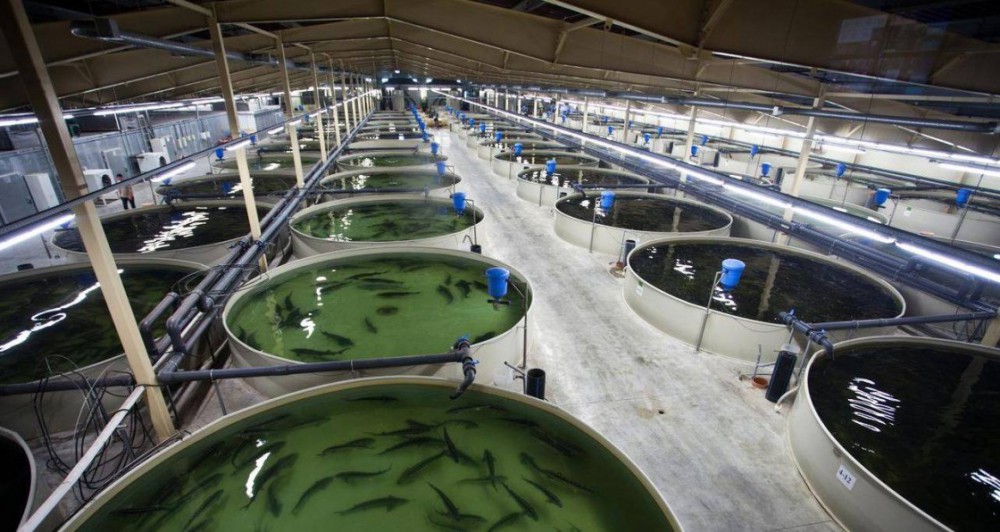
Selecting the right site for a fish farm is crucial for successful aquaculture. The location impacts the efficiency, productivity, and sustainability of the fish farming operation.
Here, we delve into 5 factors to consider when selecting a site for a fish farm, providing detailed insights to help ensure a successful setup.
1. Why Is Water Quality Important in Site Selection for a Fish Farm?
Water quality is arguably the most critical factor when selecting a site for a fish farm. The water must meet specific standards for temperature, pH, dissolved oxygen, and contaminants to support healthy fish growth.
Good water quality ensures that fish can thrive and grow efficiently. For instance, most fish species require a consistent temperature range and high oxygen levels to avoid stress and disease.
Contaminants like heavy metals or excessive nutrients can negatively affect fish health and growth, making it essential to test and monitor water quality regularly.
Moreover, access to a reliable water source is necessary for maintaining optimal conditions and managing the farm’s daily operations.
Poor water quality can lead to high fish mortality rates and reduced productivity, making this factor paramount in site selection.
2. How Does Land Topography Affect Fish Farm Location?
Land topography plays a significant role in site selection for a fish farm. The layout of the land influences water flow, ease of construction, and overall management of the fish farm.
Ideally, the site should have a gentle slope to facilitate natural water flow and drainage, reducing the need for extensive land modification.
Proper topography helps in creating efficient water systems, minimizing the risk of waterlogging or erosion.
Flat or gently sloping land is easier to manage and allows for better control of water distribution, which is crucial for maintaining optimal conditions throughout the farm.
Additionally, topography impacts the accessibility of the site for construction and maintenance, affecting overall operational efficiency. A
nalyzing the land’s topography helps in designing a farm layout that enhances productivity and reduces potential operational challenges.
3. What Role Does Climate Play in Choosing a Fish Farm Site?
Climate significantly influences the success of a fish farm. Temperature, rainfall, and seasonal variations can impact water conditions and fish health.
Fish species have specific climate requirements. Some species thrive in warmer waters, while others prefer cooler temperatures.
It’s crucial to select a site where the local climate aligns with the needs of the fish species you plan to farm.
For instance, warm climates may require additional cooling systems to maintain optimal water temperatures, while cooler climates might necessitate heating systems.
Rainfall and seasonal changes also affect water levels and quality. Excessive rainfall can lead to runoff and contamination, while prolonged dry periods can reduce water availability.
Understanding the local climate helps in planning for these variables and implementing measures to mitigate potential impacts on the fish farm.
4. Why Is Proximity to Markets and Infrastructure Crucial for a Fish Farm?
Proximity to markets and infrastructure is vital for the efficient operation of a fish farm. Being close to transportation networks, such as roads or ports, facilitates the movement of fish and feed, reducing costs and ensuring timely deliveries.
Access to infrastructure like electricity and water supply is also important. Reliable electricity is needed for operating aeration systems, pumps, and other equipment essential for maintaining fish health.
Adequate water supply ensures consistent water quality and facilitates daily operations.
Moreover, being near markets or processing facilities helps in managing supply chains and reduces transportation costs.
Efficient access to markets can improve profitability by ensuring that fish reach consumers quickly and in good condition.
5. How Does Legal and Environmental Compliance Impact Site Selection for a Fish Farm?
Legal and environmental compliance are critical factors in selecting a site for a fish farm. Regulatory requirements vary by region and may include permits for water usage, waste management, and environmental protection.
It is essential to research and understand local regulations related to fish farming. Compliance with these regulations ensures that the fish farm operates legally and avoids potential fines or operational disruptions.
Environmental considerations, such as protecting local ecosystems and managing waste effectively, are also crucial for sustainable aquaculture practices.
Choosing a site that aligns with legal and environmental requirements helps in maintaining a positive relationship with regulatory bodies and the community, ensuring the long-term success of the fish farm.
In conclusion, selecting the right site for a fish farm involves careful consideration of various factors. Water quality, land topography, climate, proximity to markets and infrastructure, and legal and environmental compliance all play vital roles in determining the success of the fish farming operation.
By thoroughly evaluating these aspects, you can create an optimal environment for fish growth and productivity, ensuring a thriving and sustainable fish farm.
Read Also: How to Catch and Hold Sheep and Goats Easily





